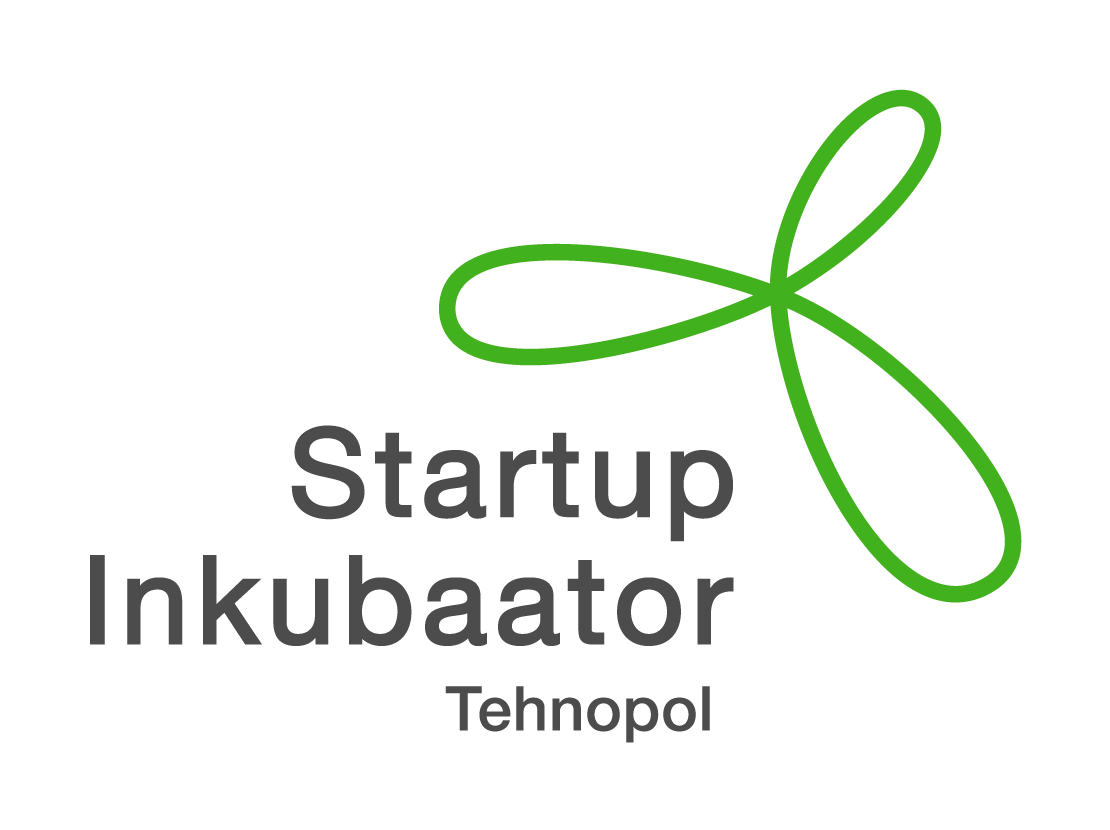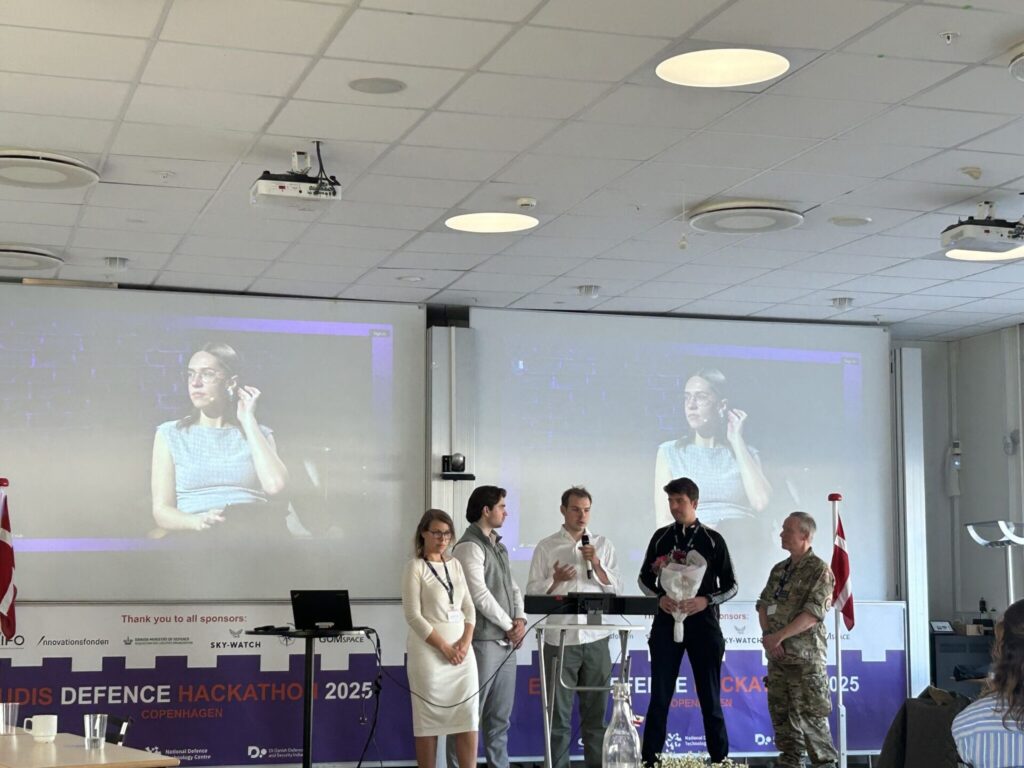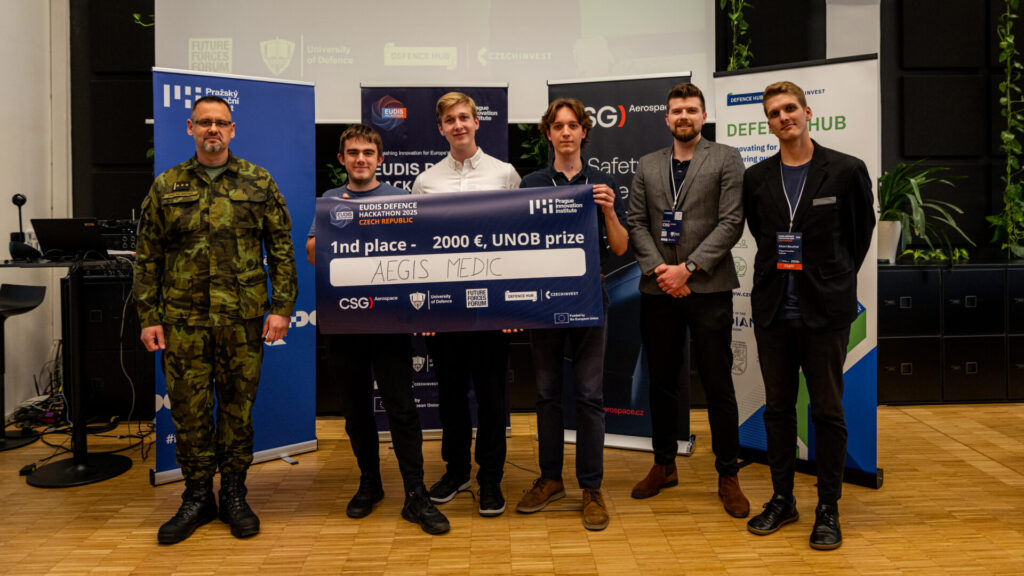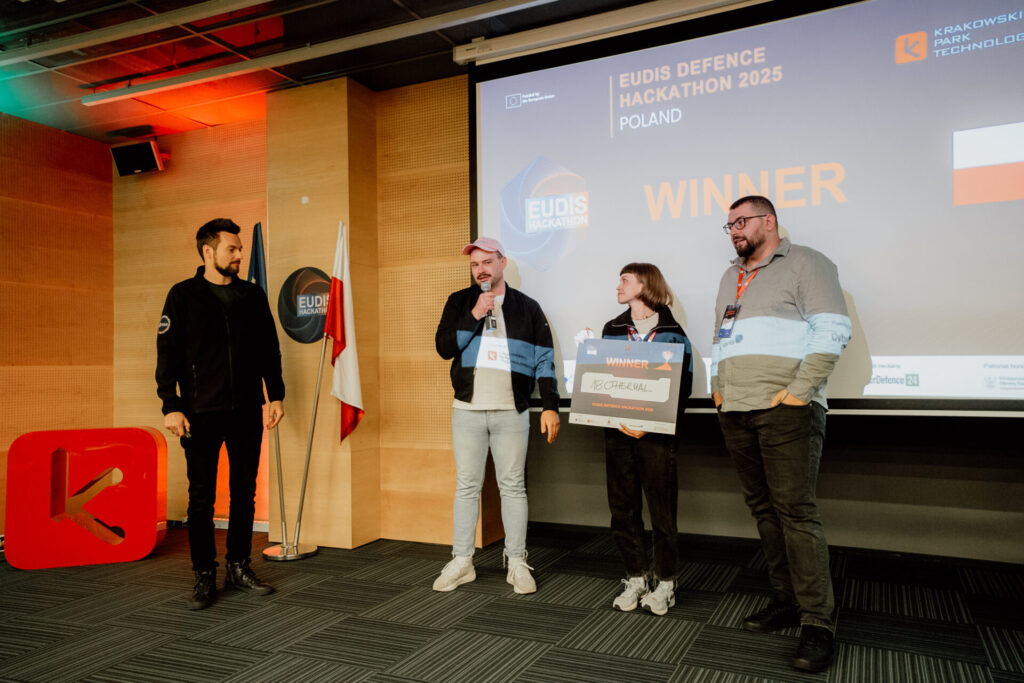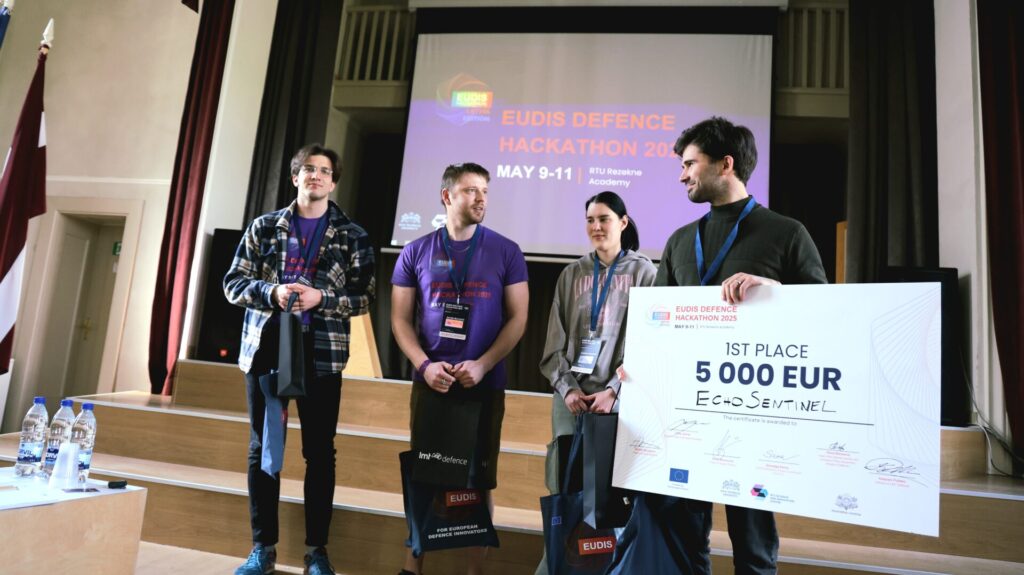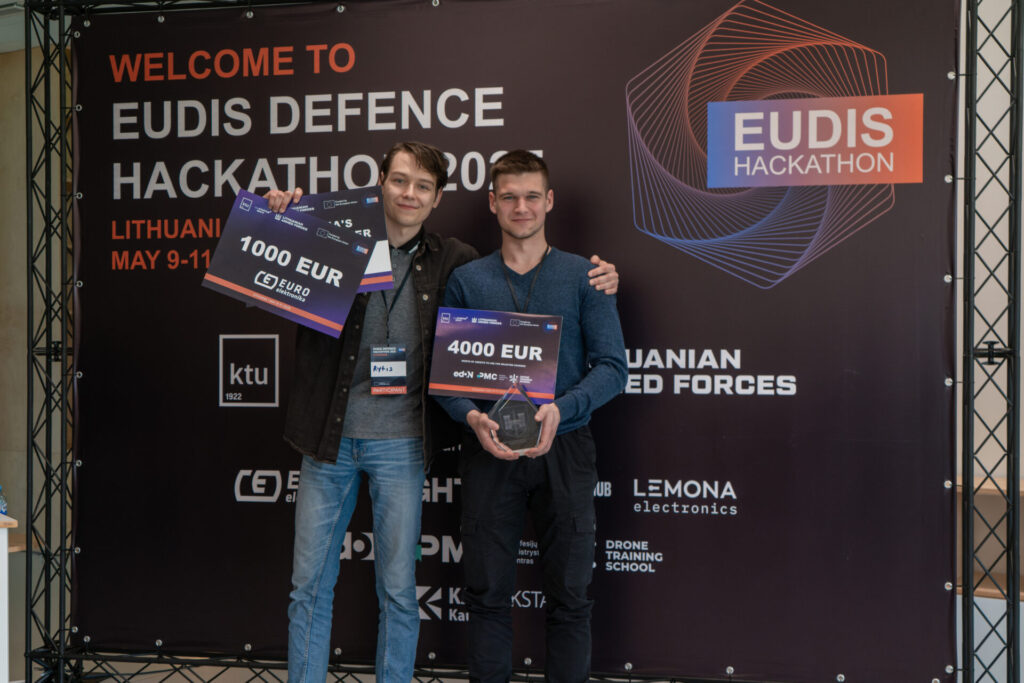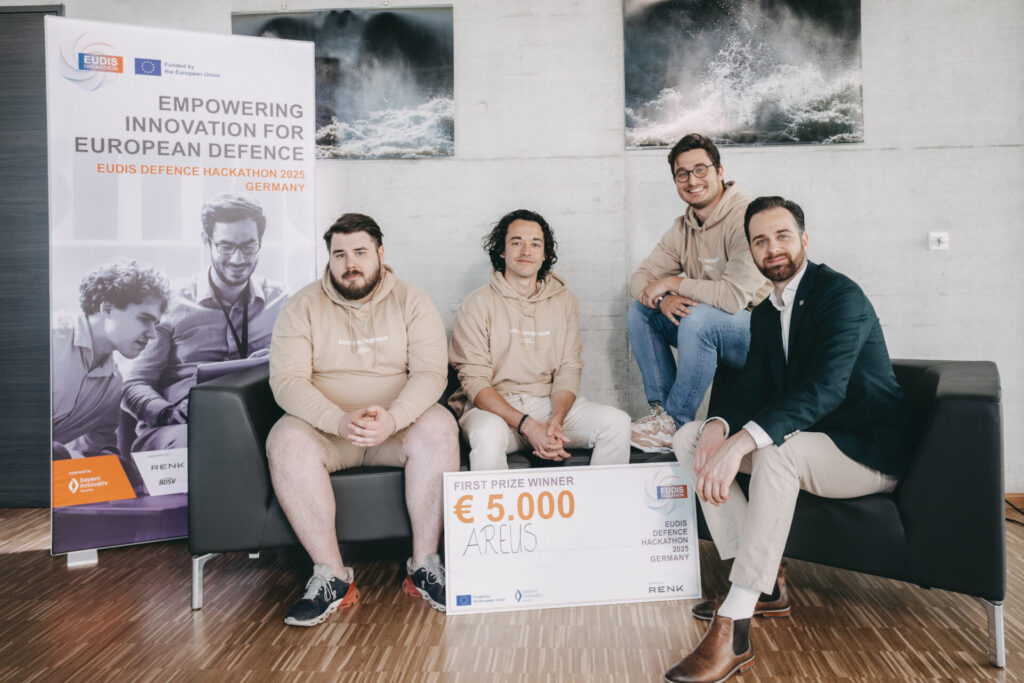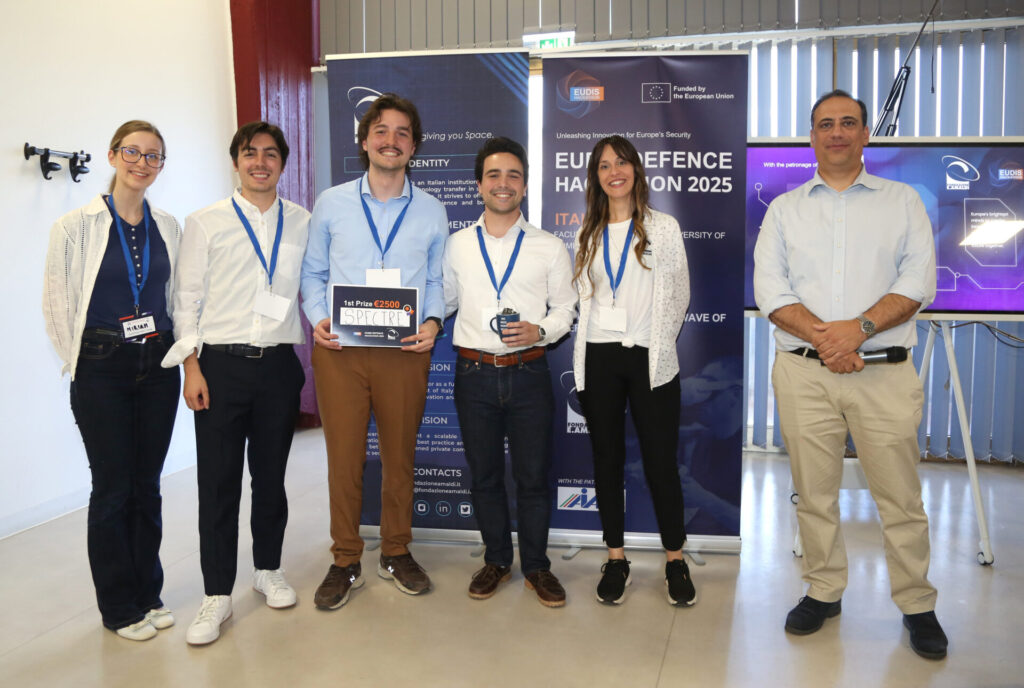Bringing bold ideas to the frontline: EUDIS Hackathon spring edition winners announced
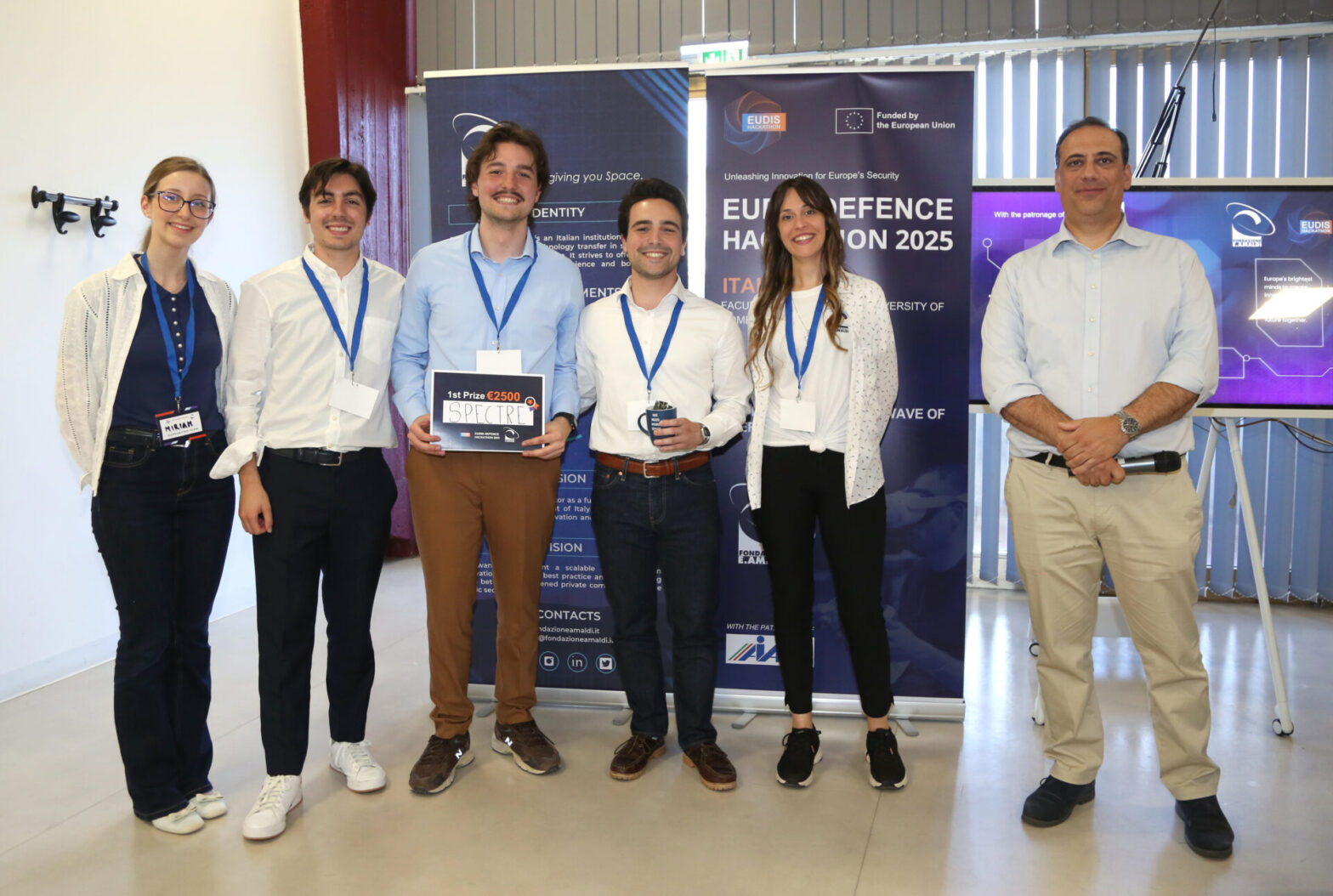
The second edition of the EU Defence Innovation Scheme’s (EUDIS) Defence Hackathon “Rapid Defence Solutions for the Ukrainian Battlefield and Beyond” was held from 9 to 11 May 2025 across eight EU Member States: Poland, Lithuania, Latvia, Germany, Denmark, Czechia, Spain, and Italy.
This spring edition focused on supporting Ukraine amid the ongoing war by developing prototypes, ideas, and solutions for military battlefield applications. For the first time, the hackathon also welcomed participants from Ukraine, fostering collaboration between Europe and Ukraine for EU and Ukrainian defence and security. On 11 May, each location announced its winning team, which gained the opportunity to participate in the EUDIS two-month mentorship programme and present their solution at the final pitching competition on 9 July 2025!
The Tehnopol Science and Business Park led the Central Hub of the EUDIS Hackathon, coordinating the activities of eight local organisers and supporting seamless international collaboration throughout the event. The Central Hub programme was hosted by Triin Ilves.
A Platform for Groundbreaking Defence Innovation
Over three days, teams collaborated and competed to develop the most promising solutions for EU defence capabilities. During the weekend hackathon, during Central Hub streams participants heard welcoming and keynote speeches from Andrius Kubilius, European Commissioner for Defence and Space; Hanno Pevkur, Minister of Defence of the Republic of Estonia; Maj. Gen. (Ret.) Volodymyr Havrylov, former Deputy Minister of Defense of Ukraine; and Laura Elise Arvisto from defence startup Galttech. Additionally, participants were supported by numerous speakers, mentors and experts to refine their ideas. Each location hosted exciting local activities and offered prizes for the winning teams, including cash awards, mentorship hours, and a trip to Ukraine to test their solutions in real-life scenarios.
Participants tackled challenges that included Enhanced Situational Awareness and Tactical Surveillance Systems; Cost-Effective Protective Gear for Frontline Defence; and Advanced Medical Support for Frontline Care. The EUDIS Hackathon was open to individuals and teams aged 18+ from EU Member States, Norway, and Ukraine, including researchers, developers, students, innovation enthusiasts and defence experts.
And the winners are…
On Sunday, 11 May, eight winners were selected—one from each host location: Krakow Technology Park (Poland), Kaunas University of Technology (KTU) (Lithuania), Riga Technical University (RTU) (Latvia), Bayern Innovativ GmbH (Germany), National Defence Technology Center (NFC) (Denmark), Prague Innovation Institute (Czechia), Arribes Enlightenment (Spain), and Fondazione E. Amaldi (FEA) (Italy)—by a selection panel comprising experts from the EU defence industry, EU Member States’ academia, and the innovation and business sector. During the hackathon, 478 hackers worked on more than 119 projects. In each location, the local selection board chose a winner who will be invited to the EUDIS Hackathon Mentorship Program, culminating with participation in a final live pitching competition on July 9, 2025.
The spring edition winners of the EUDIS Defence Hackathon are:
- AEREUS (Germany), using real-time 3D scene reconstruction and geospatial insights from drone data to enhance situational awareness and mission decisions for operational and tactical teams.
- BFT Frontier (Denmark), developed a tracker to identify friendly drones on the battlefield, minimizing risk of friendly fire and increasing operating hours.
- SPECTRE (Italy), is a next-generation acoustic stealth technology for multirotor UAVs operating in hostile environments.
- Harlequin Defense (Lithuania), building an autonomous and modular counter-FPV drone system that detects, tracks, and ultimately shoots down FPV drones attacking the protected troops and assets.
- 18°C Thermal (Poland), camouflage and defensive equipment against thermal cameras used on the battlefield, which pose an increasing threat on the front lines.
- EchoSentinel (Latvia), lightweight, cost-effective battlefield intelligence system designed to enhance tactical situational awareness by detecting and analyzing audio signatures of vehicles and drones.
- Aegis Medic (Czech Republic), offline life-saving care using a small LLM.
- Battle Field Network (Spain), network of sensors and servers for the battlefield to enhance situational awareness.
A Catalyst for EU Defence
The success of the Spring 2025 EUDIS Hackathon marks another milestone in Europe’s journey toward a stronger, more innovative EU defence ecosystem. The EUDIS Hackathon continues to be a vital catalyst for the EU’s defence transformation by empowering talent, accelerating innovation, and building bridges across borders and sectors. The ingenuity and collaboration demonstrated by this year’s winners underscore the programme’s potential to shape the future of European security—one groundbreaking idea at a time.
“This year’s theme shows our unwavering support for Ukraine building on Europe’s key strengths: innovation, creativity, and collaboration. These elements are turning Europe into a global defence innovation powerhouse, ready to address the challenges of tomorrow.”
Timo Pesonen, Director-General for Defence Industry and Space, European Commission
What’s next?
The Autumn edition of the EUDIS Hackathon 2025 is now open to local organisers. Focused on the theme of “Technologies for Space and Defence” with three challenges (protection of space assets, Space for defence, and Sovereign Aerospace), this edition promises to deliver cutting-edge solutions to ensure control and resilience across the European space ecosystem. Register here.
The Hackathon will occur across eight locations from 17-19 October 2025.
Follow the website for the lates updates on this Space-Defence Hackathon: https://eudis-hackathon.eu/.
